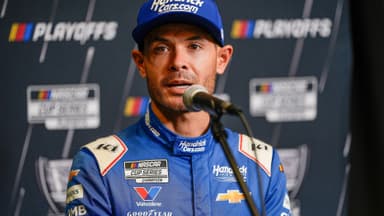NASCAR has long been, and in many ways still is, a personality-driven sport, with fans latching onto drivers as much for who they are as for how they race. Yet in recent years, shifting sponsorship demands and PR filters have muted much of that individuality, leaving many convinced the sport has lost part of its soul.
Advertisement
Ray Evernham, the former crew chief now serving as an American consultant for Hendrick Companies, believes the time has come to bring NASCAR back to the days of Dale Earnhardt and Richard Petty, when a driver’s character was never hidden in the shadows.
Drivers historically stood out as more relatable than athletes in many other sports, with roots often planted in blue-collar soil. That upbringing made them reflections of the average fan. The late 1980s and 1990s, defined by Earnhardt’s grit and Jeff Gordon’s polish, showed how strong personalities could carry the sport while building powerful commercial brands.
Critics argue that much of that edge has eroded. Today, PR representatives, often working directly for teams, seem more invested in managing images than showcasing the real personalities of the drivers, which has produced a generation of drivers who come off neutral and restrained. That can make it harder for new fans to find a figure worth rooting for.
Evernham insisted the answer lies in bringing personality back to the forefront. Young talents like Carson Hocevar are beginning to show flashes of that spark. He argued that fans engage not only with how drivers race but with who they are, and NASCAR’s enduring strength lies in producing genuine, relatable figures who mirror their fan base.
Asked what change he’d like to see in the sport, Evernham said, “I would like to see more of the personality like yours, like your brothers, the Dale Earnhardt, those things put more back into the sport because I think even in football and baseball, we still have those stories of these kids, poor kids or kids that weren’t wealthy, inner city kids that work their butt off to get there because they love the sport. They didn’t do it to buy a new car.”
He stressed the need to see who drivers truly are, not just the polished surface. Evernham admitted he isn’t fond of kids who land rides thanks to family money and then wreck equipment without appreciation. He’d rather watch hungry young racers claw their way from the back, proving they belong on the grid because racing is in their blood.
That, he said, is why he counts himself a Kyle Larson fan. In his eyes, Larson embodies the old-school racer’s spirit, willing to strap into anything, anywhere, anytime, for no reason other than the pure love of racing.
Besides that, Evernham added that he also wants drivers and crew chiefs to regain more freedom to fine-tune their cars to suit personal styles.
Greater adjustability, he argued, would allow teams to tailor machines to the men behind the wheel, putting individuality back into the heart of the sport, unlike now, when NASCAR has bound all the teams with parity in their cars.







